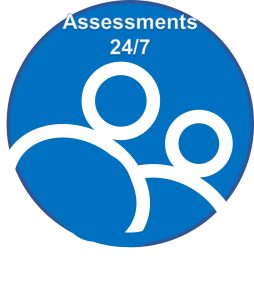Published with Permission from Assessments 24/7.

This is a Monday blog series; our regular coaching blog will be published on Thursday’s.
Expanding on the previous blogs explaining the DISC styles and how to identify them, this blog reviews how to identify DISC style based on writing.
Dominance – High “D” Style
EMAILS ARE BRIEF AND TO THE POINT
An email from a Dominance Style tends to be brief, dynamic, and to the point. They may mention highlights of conversations or materials, but they don’t belabor them. They may give specifics for your follow-through or raise questions they want answers to now. “The Mulvaney account needs to be reworked. I hear he’s got a new partner and a different address. Track him down and get the data we need so we can let him know that we’ve studied his account and we know our stuff.”
Even notes and cards take on abbreviated forms and may show little or no indication of feelings. “Todd, hope you’re doing well. I’m working hard.” It is common for Dominance Style to sign personal birthday and Christmas cards with no closing, not even “Sincerely,” but with just their names. Dominance Styles are task-focused, and perhaps in their efforts to get as many things accomplished as possible, tend to opt for brevity. Terms of endearment are rarely necessary.
Influence – High “I” Style
Emails, too, can reveal the Influence Style behind the correspondence. Often, this type overuses exclamation points, underlining, and bold highlighting. You can almost hear her emphasizing those picturesque adjectives and adverbs. Just as the Influence Style tends to speak in a stimulating, energetic way, so does she write. She may also throw in an image-provoking personal anecdote or reference to some mutually satisfying experience. “I’ll never forget our adventure on the freeway en route to Los Angeles – in rush hour, of course!” When she’s finished a letter or note, she may add a postscript (P.S.), a P.P.S., or even a P.P.P.S. It is highly likely you’ll see symbols and emoticons used, peppered throughout the narrative to lighten the language.
Remember, these tendencies may not as readily reveal themselves if the Influence Style has learned to tone down her natural flair while conducting business. And there’s always a possibility that an assistant cleans up her copy before sending it out, especially if the assistant is a more reserved, less animated behavioral type.
Steadiness – High “S” Style
In written correspondence, Steadiness Styles may send notes just to keep in touch or to let you know they’re thinking of you. Of the four personality types, this one is likely to send thank you notes for almost anything – inviting them to a party, driving them to the dry cleaners, or saving coupons for them. They may even send a thank you note to acknowledge your thank you note. Again, they are likely to organize their correspondence, writing as they do their other to do task lists – probably in sequential in-out order. Since they tend to write in a slower, more methodically paced manner, their work tends to follow a systematic outline pattern. You’ll likely always see the start of the message addressing how the other party is doing, “I hope this message finds you well and healthy.” There is as great a likelihood that they’ll end the message with an offer of support or provide an opportunity to connect, should it be helpful.
Conscientiousness – High “C” Style
Conscientiousness Styles typically send emails to clarify or explain. Consequently, the emails may become rather long and filled with data, and unlikely to have very much personal or emotional flair to the message. “I was struck by the similarities between the Noonan and Kilgary lawsuits.” But they may also be somewhat reserved or vague. “I’m researching a company’s file now that I can’t talk about.” Or the email may be on the short side with enclosures, citations, or references to specific information. Whether they prefer the long or short form, they usually concentrate on processing data. They like to cover their bases, so they are neither misinterpreted, incomplete, nor incorrect.
Like Dominance Styles, in the interest of time, they may sign personal cards with just their names or with individual mottos, like “In the spirit of growth, Jonathan Williams.” Even if you know them well, this type may include their surnames so there’s no mistaking who sent this card.
In the next blog are listening and questioning strategies for each DISC style.




